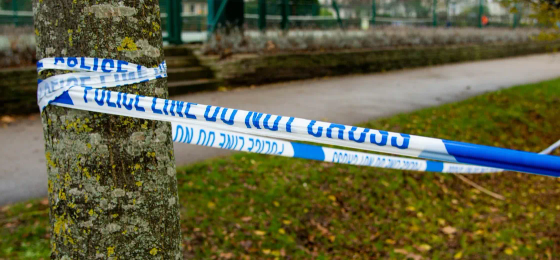Can Police Search Your House Without a Warrant In The UK

It’s a situation that makes many people nervous - the police at your door asking to come in. If you’re wondering, “can police search your house without a warrant UK?”, the short answer is - usually - no. But there are important exceptions. Knowing those exceptions, and your rights, helps you stay calm and make informed decisions.
In most cases, officers must have a search warrant issued by a Magistrates’ Court. However, the law allows entry without a warrant in certain situations — for example, to arrest someone for an indictable offence, to prevent serious harm, or to secure evidence after an arrest. These powers come mainly from the Police and Criminal Evidence Act 1984 (PACE), while your right to privacy is protected under Article 8 of the Human Rights Act 1998.
In this guide, we’ll explain:
- The police’s powers of entry and search under UK law.
- When they can enter your home without a warrant.
- What happens during a home or vehicle search.
- Your rights and how to protect them.
- Recent legal changes affecting police powers.
- What to do if your home has been searched.
- How MMA Law can help if you believe your rights were breached.
If officers arrive at your address, don’t panic. Ask to see identification and any warrant, and contact a solicitor immediately. The sections below will guide you through the process, so you understand the law, your rights, and the steps to take if this happens to you.

What Powers Do Police Have to Enter and Search Your Home?
The police have what’s known as “powers of entry and search” - legal permissions that allow them to enter and search premises in specific circumstances. These powers are mainly set out in the Police and Criminal Evidence Act 1984 (PACE), which governs how officers can act when investigating crimes in England and Wales.
The General Rule – A Warrant Is Usually Required
In most situations, the police must have a warrant to enter and search your property. A warrant is an official document issued by a Magistrates’ Court, authorising entry to look for specific evidence linked to an alleged offence. Warrants are usually granted under Section 8 of PACE, and officers must show you a copy before entering, unless this would endanger life or compromise the search.
Key PACE Provisions Explained
Police entry powers are spread across several sections of PACE:
- Section 8: Allows police to apply for a search warrant from a magistrate when they have reasonable grounds to believe that evidence of a serious offence is inside a property.
- Section 17: Permits entry without a warrant to arrest someone, save life or prevent serious damage to property, or recapture someone who has escaped lawful custody.
- Section 18: Authorises a search after an arrest, if officers suspect there is further evidence connected to the offence at other premises occupied or controlled by the suspect.
- Section 32: Lets police search the premises where an arrest took place or where the suspect was immediately before arrest, again to find evidence related to the offence.
Reasonable Grounds and Your Rights
All police searches must be based on reasonable grounds - meaning officers must have an objective reason to believe evidence or a suspect is present. They cannot rely on hunches or assumptions.
These powers must also respect your rights under Article 8 of the Human Rights Act 1998, which protects your right to privacy and family life. Any unlawful or excessive entry may breach this right and could render evidence inadmissible in court.
If you believe your home has been searched unfairly or without authority, contact our Criminal Defence Solicitors in Middlesbrough for immediate advice.

When Can Police Enter Your Home Without a Warrant?
There are specific circumstances where police can legally enter your property without a warrant. Although the general rule under UK law requires a warrant, the Police and Criminal Evidence Act 1984 (PACE) provides limited exceptions that allow officers to act immediately in certain situations. These powers are designed to protect life, prevent serious harm, or secure vital evidence.
Circumstances Where Entry Without a Warrant Is Allowed
The police can enter your home without a warrant if:
- To Arrest Someone (Section 17 PACE) – Officers may enter to arrest someone suspected of an indictable offence, such as burglary, assault, or drug supply.
- To Capture Someone Who Has Escaped Custody – If a person has escaped lawful detention, police can enter property to find and recapture them.
- To Prevent Serious Damage, Injury, or Loss of Life – Entry is permitted to prevent harm or damage - for example, to stop a violent attack or protect someone in danger.
- To Enforce Court Orders or Warrants – Some warrants, such as those for arrest or deportation, authorise entry by default.
- With the Occupier’s Consent – If you give voluntary permission, police can enter and search your home. Consent must be clear, informed, and not given under pressure.
- Following an Arrest (Sections 18 and 32 PACE) – After an arrest, police may search premises connected to the suspect for evidence related to the offence.
- In Urgent Situations (Hot Pursuit) – Officers can enter if delaying entry would risk safety, allow evidence to be destroyed, or enable a suspect to escape.
What Are the Limits of These Powers?
Police powers of entry are not unlimited. Officers can only search areas relevant to the purpose of their visit. For instance, if they are looking for stolen property, they cannot go through personal letters or unrelated electronic files.
Unreasonable or excessive searches may breach your rights under Article 8 of the Human Rights Act 1998, which protects your privacy and home life. If the police overstep their powers, any evidence obtained could be ruled inadmissible in court.
If you believe officers entered unlawfully or acted inappropriately, you can raise a formal complaint with the Independent Office for Police Conduct (IOPC) or seek advice from a solicitor.
.What About Vehicle Searches and Other Premises?
Police powers to search vehicles and other types of property, such as workplaces or business premises, are slightly different from those that apply to private homes. Understanding these differences helps you recognise when a search is lawful and when it may not be.
Vehicle Searches
In the UK, police can search your car without a warrant under certain laws. The main powers come from Section 1 of the Police and Criminal Evidence Act 1984 (PACE) and Section 60 of the Criminal Justice and Public Order Act 1994.
- Under Section 1 PACE, officers can stop and search a vehicle if they have reasonable grounds to suspect it contains illegal items, such as drugs, weapons, stolen property, or tools used in crime.
- Under Section 60, officers may stop and search people or vehicles in a designated area without suspicion, but only when authorised by a senior officer - usually after serious violence or organised crime has been reported.
- If someone in the vehicle is arrested, the police can search the car under Section 32 PACE for evidence related to that offence.
When carrying out a search, officers must identify themselves, explain the reason for the search, and provide a written record if requested. You have the right to ask for a copy of this record later.
Other Premises
Police powers to search business premises or workplaces depend on the circumstances. They may enter with the owner’s consent, with a search warrant issued by a Magistrates’ Court, or under specific legislation such as the Misuse of Drugs Act 1971 if illegal activity is suspected.
If your workplace or business is subject to a police search - particularly for alleged drug offences or conspiracy-related activity - seek immediate legal advice. Our Drug Conspiracy Solicitors and Criminal Solicitors at MMA Law can assess whether the search was lawful and help protect your rights.

What Happens During a Search – Your Rights and What to Expect
If the police search your home, vehicle, or workplace, it’s natural to feel anxious. Understanding what officers must do - and what rights you have - can help you stay calm and protect yourself legally.
What Police Must Do During a Search
When conducting a search, officers are required to:
- Identify themselves and state which police station they are from.
- Explain the reason for the search and what they are looking for.
- Show you their ID and, where applicable, a copy of the search warrant.
- Provide a search record, either at the scene or later, outlining what was done and what was seized.
- Act reasonably and respectfully, avoiding unnecessary damage or disruption.
If the search is carried out without a warrant, officers must explain the specific legal power they are using. For example, Section 17 or 32 of the Police and Criminal Evidence Act 1984 (PACE).
Your Rights During a Search
During a police search, you have the right to:
- Ask to see identification and, if applicable, the warrant.
- Request legal advice before or during questioning.
- Remain silent, other than confirming your name and address.
- Stay calm and avoid obstructing officers, as interference could lead to arrest.
You should also make a note of the officers’ names and badge numbers, as well as the time and reason for the search.
If You Believe Your Rights Have Been Breached
If you feel the search was unlawful or excessive, you can:
- Ask for a copy of the search record or warrant.
- Take photos or notes of any damage or conduct that seemed improper.
- Seek immediate legal advice from MMA Law.
Evidence obtained through an unlawful search can sometimes be excluded in court, meaning it cannot be used against you.
Recent Changes and Developments (2024–2025)
In recent years, UK legislation and police oversight mechanisms have evolved to reflect changing crime patterns and public concerns. One of the most significant developments is the Crime and Policing Bill 2024‑25 (often referred to simply as the “Crime and Policing Bill”), introduced by the Home Office in February 2025.
Key Proposed Changes
- The bill provides new entry powers for police in relation to properties suspected of holding stolen or electronically tracked items. For example, police may not need a warrant to enter locations when a stolen phone or similar device is geo-tagged and evidence indicates its position.
- It expands police powers of search and seizure in efforts to tackle serious and organised crime, antisocial behaviour and violent offences.
- A focus on oversight is also built into the bill - the fact sheets outline reforms for police accountability, performance, and recording of search powers.
New Safeguards and Oversight
The Home Office has emphasised that the new powers will be balanced by extra safeguards. These include improved transparency of stop and search data (such as age, sex and ethnicity breakdowns). The reforms stress that entry and search powers must still respect the right to private life under the Human Rights Act 1998 (Article 8 of the ECHR) and must be exercised lawfully and proportionately.
Frequently Asked Questions
Do police need a warrant to search your house?
Yes, police normally need a search warrant issued by a Magistrate under Section 8 of PACE. A warrant must clearly state the address and the items being searched for. Police can only enter without one in specific emergency circumstances, such as to make an arrest or prevent injury. You are entitled to see and keep a copy of the warrant before or during the search.
Can police enter your house without permission UK?
Police can enter your home without your permission only when the law allows. This includes circumstances under Section 17 of PACE, such as arresting someone, preventing harm, or recapturing an escaped prisoner. Entry with your consent is also lawful, but consent must be freely given. You can refuse entry unless officers have clear legal authority or a valid warrant.
Can police search your car without a warrant?
Yes, police can search your car without a warrant if they have reasonable grounds to suspect it contains illegal items such as drugs or weapons. This power comes from Section 1 of PACE. In some cases, under Section 60 of the Criminal Justice and Public Order Act 1994, police can stop and search vehicles without suspicion in a designated area. Officers must explain the reason for the search and provide a written record if requested.
What is a Section 32 PACE search?
A Section 32 PACE search allows police to search a person and the place where they were arrested, without a warrant, for evidence relating to that offence. For example, if someone is arrested inside a property, police can check nearby rooms for relevant evidence. The search must be reasonable and connected to the arrest; it cannot be used as a general search of the entire premises.
What are police powers of entry without a warrant?
Police powers of entry without a warrant are listed mainly in Sections 17, 18, and 32 of PACE. Officers can enter to make an arrest, prevent harm, recapture someone, or locate evidence following an arrest. These powers are limited - they must act lawfully, identify themselves, and justify why a warrant wasn’t obtained. Unlawful entry can breach your Article 8 right to privacy under the Human Rights Act 1998.
Do police need “reasonable grounds” to search?
Yes. Under UK law, police must have reasonable grounds for believing that evidence, illegal items, or a suspect are present before conducting a search. This means there must be objective reasons, not mere suspicion or profiling. Without reasonable grounds, the search could be deemed unlawful, and any evidence obtained might be excluded in court proceedings.
Can police take items during a search?
Yes, police can seize items found during a lawful search if they believe those items are evidence of a crime or were obtained unlawfully. They must provide a record of what’s taken, and items should be returned once no longer needed. If you think property was taken unfairly or not logged correctly, you can challenge the seizure through legal representation.
What should I do if I think my rights were breached?
If you believe your rights were breached during a police search, stay calm and collect information. Request a copy of the search record or warrant, note officers’ details, and document what happened. Then, contact a solicitor immediately. A lawyer can assess whether the search was lawful and help you file a complaint with the Independent Office for Police Conduct (IOPC) if necessary.
What happens if police enter the wrong address?
If police enter the wrong address, it’s considered a serious error. They must leave immediately and report the incident. The occupier may be entitled to compensation for damage or distress caused. Any evidence found at the wrong address cannot be used in court. If this happens to you, contact MMA Law right away for legal advice and support in challenging the mistake.

What to Do If Police Have Searched or Raided Your Home
Having your home searched or raided by the police can be one of the most distressing experiences you’ll ever face. It’s natural to feel anxious, confused, or even frightened about what happens next. Knowing your rights (and taking the right steps quickly) can make a huge difference to the outcome.
Immediate Steps to Take
If the police have entered or searched your property:
- Contact a criminal defence solicitor immediately. Don’t try to deal with the situation alone. A solicitor can advise you on what to say, what to avoid, and how to challenge the search if necessary.
- Avoid discussing the case without legal representation. Anything you say to officers, neighbours, or others could later be used in evidence.
- Keep copies of all documents the police leave behind, such as the search record, warrant, or property receipt.
- Write down what was seized and ask for a complete property list.
- Stay calm and cooperate while exercising your right to remain silent until your solicitor is present.
How MMA Law Can Help
At MMA Law, our experienced team provides expert support for anyone facing a police search or raid. We:
- Review the validity of search warrants and whether police acted lawfully under PACE.
- Challenge unlawful entries or seizures in court.
- Advise and represent clients during police interviews and CPS investigations.
- Help you recover seized property or claim compensation if your rights were breached.
We understand how quickly these situations escalate and how vital early legal advice can be.
If your home or vehicle has been searched, contact our Middlesbrough Criminal Defence Solicitors for expert guidance. You can also book your free 30-minute legal appointment for immediate, confidential advice.
